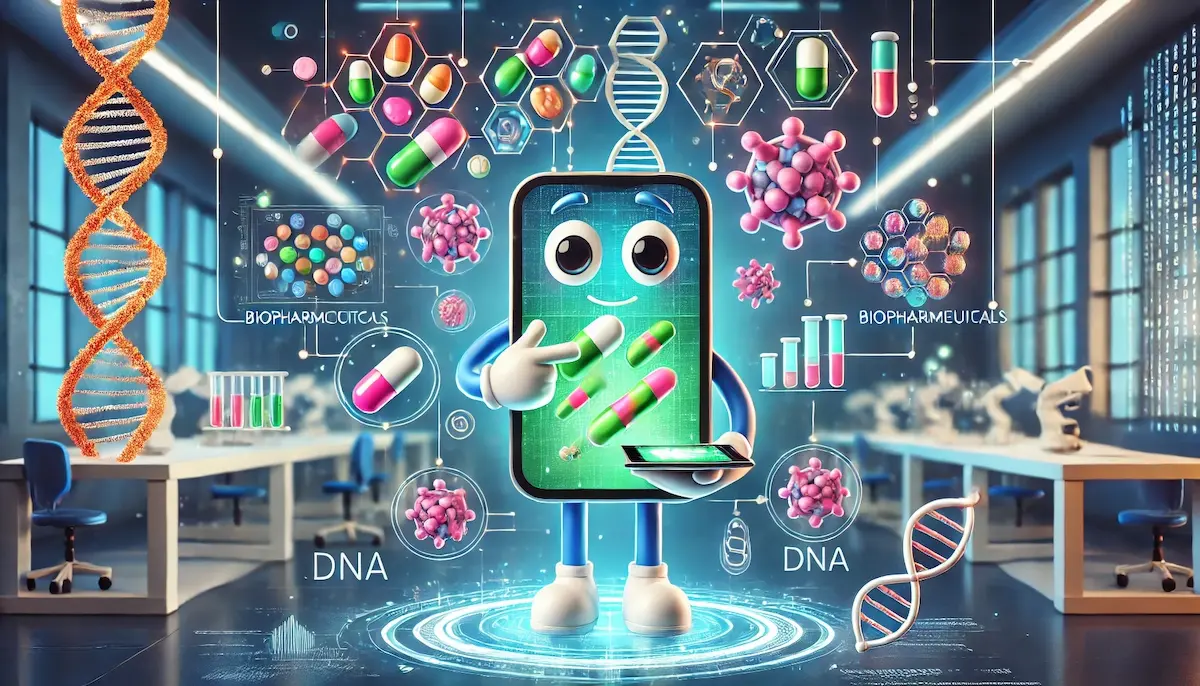Biopharmaceuticals are a class of medical drugs produced using biotechnology. These innovative therapies include proteins, nucleic acids, and living cells, which are used for therapeutic or diagnostic purposes. They represent a significant advancement in the treatment of diseases, offering more targeted and effective solutions compared to traditional small-molecule drugs.
What are Biopharmaceuticals?
Biopharmaceuticals, also known as biologics, are complex molecules manufactured in or extracted from biological sources. Unlike traditional pharmaceuticals, which are chemically synthesized, biopharmaceuticals are produced through biological processes involving living organisms such as bacteria, yeast, and mammalian cells.
Types of Biopharmaceuticals
Monoclonal Antibodies
Monoclonal antibodies are proteins engineered to bind to specific targets in the body, such as antigens on cancer cells. They can be used to treat a variety of conditions, including cancer, autoimmune diseases, and infectious diseases. Examples include trastuzumab (Herceptin) for breast cancer and adalimumab (Humira) for rheumatoid arthritis.
Recombinant Proteins
Recombinant proteins are produced by inserting the gene encoding the protein into host cells, which then produce the protein. These proteins can replace deficient or dysfunctional proteins in patients. Insulin, used to treat diabetes, and erythropoietin, used to treat anemia, are well-known examples.
Vaccines
Biopharmaceuticals also include vaccines, which are biological preparations that provide immunity to specific diseases. Modern vaccines, such as the mRNA COVID-19 vaccines, use advanced biotechnological methods to stimulate the immune system against infectious agents.
Gene Therapies
Gene therapies involve the insertion, alteration, or removal of genes within a patient’s cells to treat or prevent disease. This cutting-edge approach can target genetic disorders at their source, offering the potential for long-term cures.
Cell Therapies
Cell therapies use living cells to treat or cure diseases. These therapies can involve the transplantation of healthy cells, the use of immune cells to fight cancer (e.g., CAR-T cell therapy), or the use of stem cells to regenerate damaged tissues.
Benefits of Biopharmaceuticals
Targeted Therapy
Biopharmaceuticals can be designed to specifically target disease pathways, cells, or molecules, leading to more precise and effective treatments with fewer side effects. This targeted approach is especially beneficial in cancer therapy and autoimmune diseases.
Innovation and Versatility
Biopharmaceuticals represent the cutting edge of medical research and innovation. Their versatility allows them to address a wide range of diseases, from genetic disorders and cancers to infectious diseases and chronic conditions.
Personalized Medicine
Biopharmaceuticals are a cornerstone of personalized medicine, where treatments are tailored to the genetic and molecular profiles of individual patients. This personalized approach enhances the efficacy of treatments and reduces the risk of adverse effects.
Potential for Cures
Many biopharmaceuticals offer the potential for long-term cures rather than just symptom management. Gene and cell therapies, in particular, aim to correct the underlying causes of diseases, providing lasting solutions.
Challenges of Biopharmaceuticals
Production Complexity
The production of biopharmaceuticals is complex and requires sophisticated biotechnological processes. These processes involve the cultivation of living cells, which must be carefully controlled to ensure the quality and consistency of the final product.
Cost and Accessibility
Biopharmaceuticals are often expensive to produce and purchase, making them less accessible to patients in low-resource settings. Efforts are needed to reduce production costs and develop affordable treatments to increase accessibility.
Regulatory Hurdles
The development and approval of biopharmaceuticals involve stringent regulatory requirements to ensure safety and efficacy. The complexity of these products and their production processes can lead to lengthy and costly regulatory pathways.
Stability and Storage
Biopharmaceuticals are generally more sensitive to environmental conditions than small-molecule drugs. They often require special storage and handling conditions, such as refrigeration, to maintain their stability and effectiveness.
The Future of Biopharmaceuticals
The future of biopharmaceuticals is bright, with ongoing advancements in biotechnology, genomics, and bioinformatics driving the development of new and more effective therapies. Innovations in gene editing, synthetic biology, and personalized medicine are expected to further expand the capabilities and applications of biopharmaceuticals.
Emerging Therapies
New biopharmaceuticals, such as CRISPR-based gene therapies and advanced immunotherapies, are on the horizon. These therapies promise to tackle previously untreatable conditions and offer more precise, personalized treatment options.
Improved Manufacturing
Advancements in biomanufacturing techniques, such as continuous bioprocessing and single-use technologies, are expected to improve the efficiency and scalability of biopharmaceutical production. These improvements can help reduce costs and increase accessibility.
Broader Applications
As our understanding of biology and disease mechanisms deepens, biopharmaceuticals will likely find applications in a broader range of conditions, including neurodegenerative diseases, metabolic disorders, and rare genetic conditions.
Blockfine thanks you for reading and hopes you found this article helpful.
